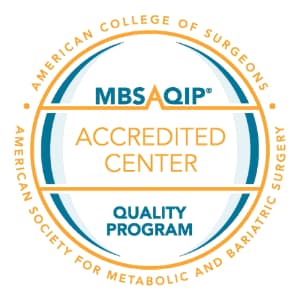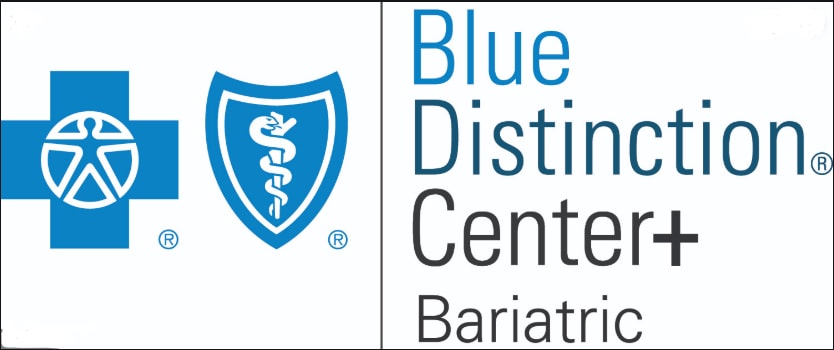Surgical Weight Loss Options

 If conservative weight-loss methods haven’t helped you long-term, change your life with bariatric surgery at UNC Health Lenoir in Kinston, North Carolina. You’ll likely enjoy more energy, and reduce or eliminate symptoms of other medical conditions, when you follow your comprehensive preparation and recovery plan. Start your journey to better health with our fellowship-trained bariatric surgeons.
If conservative weight-loss methods haven’t helped you long-term, change your life with bariatric surgery at UNC Health Lenoir in Kinston, North Carolina. You’ll likely enjoy more energy, and reduce or eliminate symptoms of other medical conditions, when you follow your comprehensive preparation and recovery plan. Start your journey to better health with our fellowship-trained bariatric surgeons.
Catherine's Weight Loss Surgery Experience
Hear about Catherine's life-changing weight loss journey at UNC Health Lenoir.
Do I Qualify for Weight-Loss Surgery?
You may be a candidate for bariatric surgery if you are age 18–70, can walk and have either:
- A body mass index (BMI) of 35-39.9 with at least one obesity-related medical condition, such as high blood pressure, diabetes, sleep apnea or gastroesophageal reflux disease (GERD)
- A BMI of at least 40, even if you don’t have an obesity-related medical condition
Consider our medical weight-loss program instead of surgery if you:
- Have severe heart or lung disease or organ failure
- Are a man with a BMI higher than 55
- Are a woman with a BMI higher than 60
Types of Bariatric Surgery
All weight-loss procedures shrink the stomach so you feel full after eating less food. Depending on your situation, your UNC Health Lenoir surgeon may recommend one of the following minimally invasive treatments that reduce pain, scarring and recovery time.
.png) Gastric Bypass
Gastric Bypass
Roux-en-Y gastric bypass forms a small stomach pouch and attaches it directly to the small intestine, bypassing most of the stomach and a lot of the small intestine. Expect to lose 60–80 percent of excess weight if you make required lifestyle changes after this surgery. About 80 percent of patients with Type 2 diabetes see their symptoms disappear with this procedure.
Gastric Sleeve Surgery.png)
Gastric sleeve surgery removes about 80 percent of the stomach. Look forward to losing 50–60 percent of excess weight if you make required lifestyle changes after this surgery. About 60 percent of patients with Type 2 diabetes see their symptoms disappear after this treatment.
Single Anastomosis Duodenal Ileostomy with Sleeve Gastrectomy (SADI-S).png)
Creates a small stomach “sleeve,” where 60% of the stomach is removed and ½ of the upper GI tract is bypassed, which decreases the amount of calories absorbed from food. Expect to lose 60-70% of excess weight if you make required lifestyle changes after this surgery. About 70 percent of patients with Type 2 diabetes see a decrease in medication requirements.
Biliopancreatic Diversion with a Duodenal Switch (BPD-DS).png)
Creates a small stomach “sleeve,” where 60% of the stomach is removed and 2/3 of the upper GI tract is bypassed, which decreases the amount of calories absorbed from food. Expect to lose greater than 70% of excess weight if you make required lifestyle changes after this surgery. About 80 percent of patients with Type 2 diabetes see a decrease in medication requirements.
Support & Recovery
Lean on your bariatric surgery team for nutritional, exercise and lifestyle education and support before and after treatment. Get encouragement and advice in monthly support groups. Maintain your progress with a free membership to Minges Wellness Center for a year following surgery.
Celebrate Vitamins Discount
Bariatric multivitamins and minerals should be taken daily for the rest of your life to optimize nutritional health and prevent deficiencies. Below is the link for bariatric multivitamins/minerals that our program recommends after weight loss surgery. If you use the link below, you will automatically receive a 10% discount. If you have any questions about which multivitamins and/or minerals to order please contact your bariatric dietitian or refer to “A Patient’s Guide to Surgical Weight Loss” educational binder.
10% Discount Link